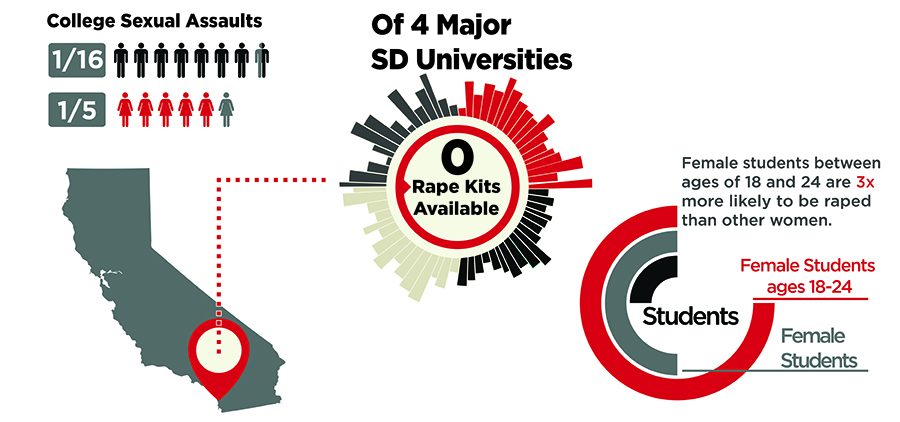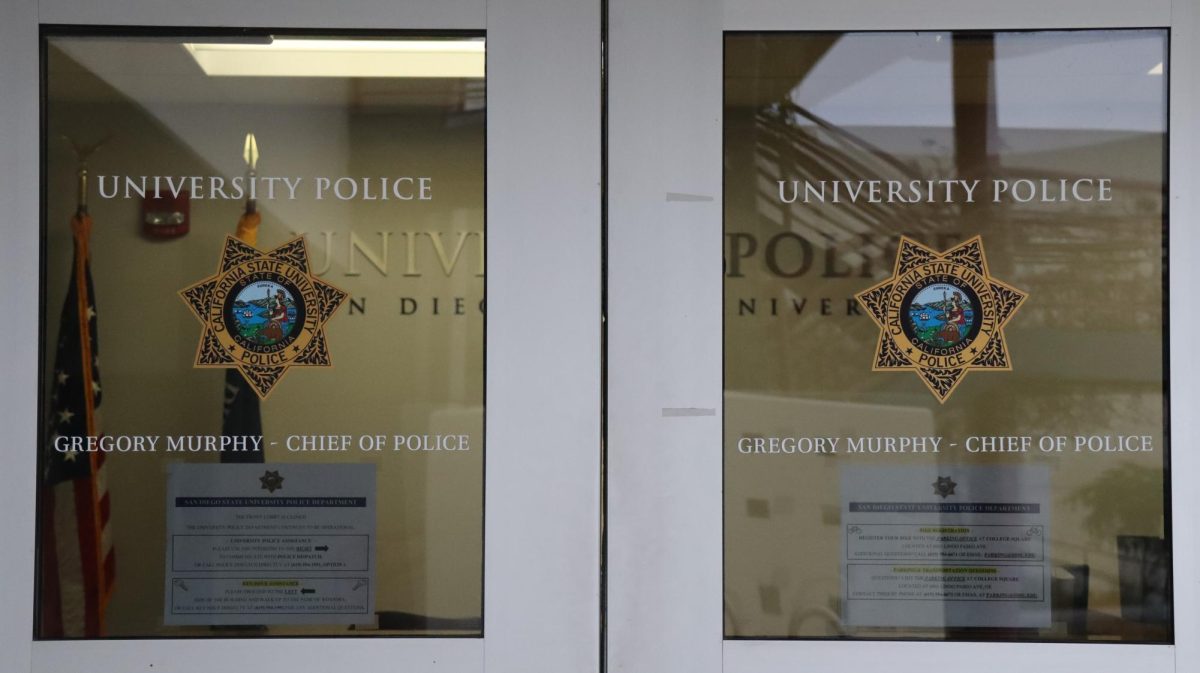Of the four major universities in San Diego, none of them have rape kits available in their campus health centers, despite the fact that college populations experience a high rate of sexual assault.
The National Sexual Violence Resource Center estimates one out of every five women and one in 16 men are sexually assaulted while in college.
Rape, Abuse and Incest National Network reports that female students between ages 18 and 24 are three times more likely to be raped than other women.
Jenny Harper, who works as a San Diego State campus advocate with the Center for Community Solutions, said the kits are not available at Calpulli Center.
University websites for UC San Diego and the University of San Diego both state students who wish to have a exam must go to an offsite facility, although the university does provide assistance in connecting students with these resources.
A nurse in the Wellness Center at Point Loma Nazarene University said the kits were not in the campus health center.
“It’s not that shocking to hear that none of these universities stock rape kits,” said Anna Voremberg, managing director for advocacy organization End Rape on Campus. “Most universities don’t have them, but it really depends on the health center.”
She explained that if the kits are to be taken into court as admissible evidence, they need to be collected by
trained personnel in an appropriate facility — which isn’t always possible in a campus health center.
“Schools really just have the obligation to make sure students can get to a place to have the kit done, like a hospital,” she said.
But students who are sexually assaulted also cannot turn to a hospital — at least not in San Diego.
“It’s really important for people to know that in San Diego, if you want this kit done, you don’t go to the hospital,” Harper said. “You can call 911 or walk into a police station, and you tell them ‘I was sexually assaulted and I’d like to have a rape kit collected.’ They will escort you to the independent forensic services facility.”
Title IX, which largely guides campuses on how to handle sexual assault, does not currently require campus health centers to maintain a stock of rape kits or hire staff members who are trained to collect the kits.
There have been a number of questions surrounding recently appointed Education Secretary Betsy DeVos’s position on Title IX and the role schools will continue to play when it comes to campus sexual assault.
Given DeVos’s previously held stances, some advocates say it is unlikely Title IX will change to include a rape kit mandate.
Voremberg said there are a lot of areas schools could dedicate their resources toward when it comes to fighting sexual assault on campus.
Currently, SDSU has a number of initiatives and programs such as the Sexual Violence Task Force, Sexual Violence Awareness and Prevention training for new students, and the It’s On Us pledge.
There are several student organizations dedicated to taking action against sexual assault including the Andrea O’Donnell Womyn’s Association, FratMANners and SISSTER.
Political science senior Jessica Beeli, who is also a member of SISSTER, said she believes it is essential to give survivors the resources and options to obtain support for criminal proceedings, and believes that having off-campus resources is a good option.
“Whether or not it would be more valuable to have these resources directly on campus, I’m not sure,” she said.
She said that having the resources off-campus may actually be more beneficial to a larger community, as college students aren’t the only ones who need access to rape kits.
“I think it is important that the people understand where they can access specific resources for whichever route they want to take, and groups like SISSTER and FRATMANERs are essential in getting the word out,” she said.
For further information on how SDSU is dealing with sexual violence on campus and to find resources, visit newscenter.sdsu.edu/bfa/title_ix/prevention.









